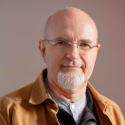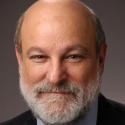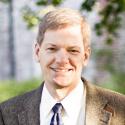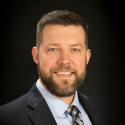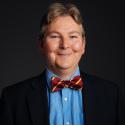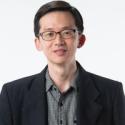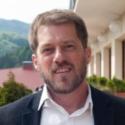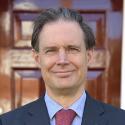2026 Theologians Network
- Image

Many evangelical theologians teach in universities, seminaries, and colleges with little opportunity for dialogue, fellowship, and encouragement from their evangelical brothers and sisters. The Theologians Network has been designed to provide this context and to make available an opportunity to interact with some of the world's leading evangelical scholars.
What Network Participants Are Saying
- "I am a member of the Theologians Network where we hear the lectures of world-renowned scholars, like John Dickson, Darrell Bock, Peter J. Williams, and Dirk Jongkind. Their insights can both strengthen my teaching work among future pastors and strengthen my apologetic skills among the frequently theologically 'liberal' (or at least inclined to liberal theology) colleagues."
- Andras Pataki, Pastor, Hungary - "Being part of the Theologians Network, I have access to outstanding Evangelical theologians, valuable talks, promising contacts, and experienced Christian leaders. ELF is an important place for me to learn how I can combine active service in my local church with a theological academic career in a healthy and God-loving way. This year’s participation in ELF was especially beneficial for me, as we are now doing something incredibly difficult in our church. I drew strength at ELF to meet those challenges through the uplifting power of the Spirit and with the support of my brothers and sisters."
- Konrad Buzala, Vicar, Poland - "Participating in the ELF has been an invaluable experience for me on multiple levels. First and foremost, it has provided me with great opportunities for getting networked, being equipped, and receiving valuable resources for mission and evangelism. The diverse range of speakers and workshops at ELF enabled me to gain new insights, broaden my perspectives, and deepen my understanding of leadership and discipleship principles. Moreover, the Forum has served as a catalyst for spiritual growth and renewal in my life. The worship sessions, prayer times, and fellowship with fellow Christian leaders rejuvenated my spirit and reaffirmed my calling."
- Paul Hyung-Keun, General Secretary of Korea Lausanne Committee, South Korea
Applicants should be involved in full-time theological education (such as teachers, professors, and theology students).
Network Leadership
Network Speakers
Darrell L. Bock is Senior Research Professor of New Testament Studies at Dallas Theological Seminary in Dallas, Texas, as well as Executive Director of Cultural Engagement for the Hendricks Center for Christian Leadership there. An author or editor of about fifty books, his special fields of… Read more
Dr. Jack Collins retired from full-time teaching in 2025 after 32 years of faithful service. During that time his deep love for the Bible and language scholarship informed his work of training pastors and church leaders. He served as the Old Testament chair on the translation committee for the… Read more
Leonardo De Chirico is the pastor of Breccia di Roma, a church that he helped plant in Rome in 2009, and Chair of the Theological Commission of the Italian Evangelical Alliance. Previously, Leonardo planted and pastored an evangelical church in Ferrara, Italy from 1997 to 2009. He earned degrees… Read more
Caleb Howard is a Research Fellow in Old Testament and Ancient Near East at Tyndale House and editor of the Tyndale Bulletin. He studies the texts, history, and scholarship of ancient Mesopotamia and the Levant. His current book project investigates the mechanics of scribal… Read more
Steffen G. Jenkins is half German, half Welsh, was born in Spain but again in England. He serves as Senior Lecturer in Greek and Biblical Studies at Union School of Theology in the United Kingdom. He has served at various seminaries in Cuba, as tutor in Biblical Languages at Tyndale House (… Read more
Dirk Jongkind is the Academic Vice Principal of Tyndale House, Cambridge, and an Affiliated Lecturer at Cambridge University. His main scholarly interest is the text and language of the Greek New Testament. He is also the editor of the Tyndale House Greek New Testament… Read more
Dr. Andrew Loke is an elected Fellow of the prestigious International Society for Science and Religion and Associate Professor in the Department of Religion and Philosophy at Hong Kong Baptist University. He has published seven monographs with world-leading academic publishers in the fields of… Read more
Ádám Szabados is a Hungarian theologian and the leader of the Hungarian Evangelical Forum. Until 2017 he had been a pastor for 20 years. He is married to Dóra and has two adult sons. He studied English literature and linguistics at the University of Veszprém (MA equivalent, with honours), and… Read more
Peter J. Williams is the Principal and CEO of Tyndale House, Cambridge. He was educated at the University of Cambridge, where he received his MA, MPhil, and PhD in the study of ancient languages related to the Bible. After his PhD, he was on staff in the Faculty of Divinity at the University of… Read more
Network Programme
Sunday, 17 May
Historically speaking, European theology has had a leading role in the shaping of evangelicalism. What about today? The spiritual climate in the continent is patchy and evangelical theology reflects its diversified condition. The session aims to provide a bird’s-eye view of its present-day outlook, taking 1976 (i.e., the constitution of FEET, the Fellowship of European Evangelical Theologians) as a starting point. The session will attempt to geographically map the institutions, journals, personalities, conferences, etc., that have played a role in shaping European evangelical theology. It will also suggest some theological reflections on the strengths and weaknesses of its contemporary setting. This preliminary groundwork may stimulate further exploration of the opportunities and challenges ahead as we consider the future of European evangelical theology.
This session will look first at the sort of arguments for the reliability of the Old Testament which tend to be ineffective because they are not adequately supported or appeal to evidence which is debatable and urges Christians to use arguments which are based on the broadest possible patterns of evidence. These arguments include arguments for the uniqueness of the Old Testament theologically and for its unusually critical view of the human protagonists. We also consider the significant changes which have occurred in our knowledge since archaeology began and how approximately 2% of the named individuals in the Old Testament may be verified outside the Old Testament.
Monday, 18 May
Since 2009, the Old Testament scholar John Walton has produced a series of short books for laypeople which assert the existence of a “lost world” behind key parts of the Old Testament, including The Lost World of Genesis One, The Lost World of Scripture (co-authored with D. Brent Sandy), The Lost World of Adam and Eve, The Lost World of the Israelite Conquest (co-authored with J. Harvey Walton), The Lost World of the Flood (co-authored with Tremper Longman III), The Lost World of Torah (co-authored with J. Harvey Walton), The Lost World of the Prophets, and, most recently, New Explorations in the Lost World of Genesis. For Walton, this lost world, a historical-conceptual background reconstructed from extrabiblical literature, is essential for understanding the Old Testament. This presentation will evaluate Walton’s arguments, especially in his books dealing with Genesis, and offer a critique, from the point of view of ancient Near Eastern literature and biblical exegesis.
This joint session with the Theologians and Scientists Networks focuses on the exegetical, biblical side of the creation debate. Three biblical scholars–Peter J. Williams, Andrew Loke, and Jack Collins–will present their linguistic and theological arguments on how Genesis and the creation texts in Scripture should be understood. These presentations will be followed by a moderated panel discussion and then Q&A from the audience.
Tuesday, 19 May
In the daily practice of teaching students Hebrew and Greek in seminaries and theological degree programmes, we constantly emphasise ‘translation’. But why should we spend hundreds of hours learning the biblical languages when there are already good Bible translations? Though much is found in our translations, the richness of the original is not something that a single translation can capture fully. By learning to read Scripture well in the original languages, as opposed to merely translating, we learn to follow the thoughts and the subtle points the author is making. In this session, we will look at a number of examples in the New Testament that will help us to appreciate the usefulness of reading the text in Greek. This will encourage us to become better readers, better students, and also better teachers of Scripture.
We would know so little about the early church if we did not have the book of Acts. Some argue we still do not know very much because we cannot trust Acts as history. We examine this question by showing how the ancients viewed history versus myth, working through some examples of how Acts reports events, and examining carefully claims that the picture of the theology of Acts does not fit with what we do know about Paul. Luke indeed shows himself to be a credible ancient historian. This workshop shows how we know that.
Wednesday, 20 May
The Book of Exodus does more than develop the plot of the Book of Genesis. Genesis had taught us how to view ourselves in the land of Egypt. More broadly, Genesis had taught us how to view the whole world in relation to the God who creates and who saves. Exodus tells its magnificent history in ways that build on the lessons of Genesis. We can see that there is much more going on here than yet another tale of oppression and rescue. The God who made the world and who had already begun to redeem sinners, created something new by calling his people out of Egypt. We will see how this helps us to understand the Biblical Theology that the New Testament assumes.
Liberation Theology challenges the church to care for the poor and oppressed, but its Marxist roots raise serious questions. This talk examines both its appeal and its dangers, and points to the true hope of freedom in Christ.

